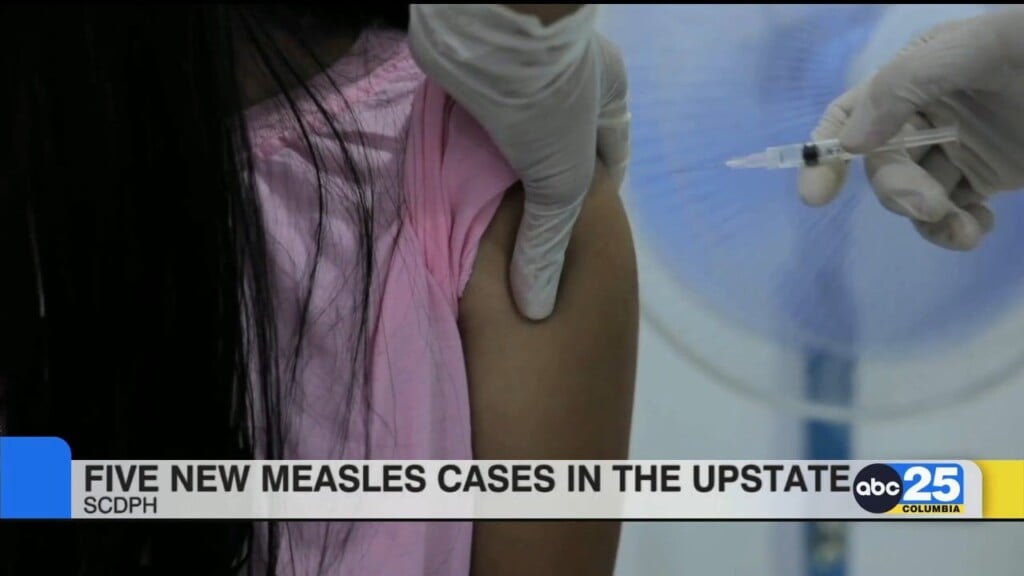Tips to ward off Mosquitoes this Summer from SC DHEC
The South Carolina Department of Health and Environmental Control has tips to help prevent bites from mosquitoes
COLUMBIA, SC (WOLO)– Summer brings fun in the sun and those pesky mosquitoes.
The South Carolina Department of Health and Environmental Control has tips to help prevent bites from mosquitoes.
“As warm weather arrives and people encounter more mosquitoes, protecting yourself from bites becomes more important,” said Dr. Chris Evans, State Public Health Entomologist with DHEC’s Bureau of Environmental Health Services. “DHEC’s surveillance program helps identify cases of West Nile virus and other mosquito-borne diseases in our state. Most mosquitoes are just a nuisance; however, we detect West Nile virus in mosquitoes in our state every year.”
DHEC says the American Mosquito Control Association recommends three “Ds” to keep mosquitoes away:
- Drain: Empty out water containers at least once per week.
- Dress: Wear long sleeves, long pants, and light-colored, loose-fitting clothing.
- Defend: Properly apply an EPA-registered product that contains a repellent such as catnip oil, citronella/citronella oil, DEET, IR 3535, oil of lemon eucalyptus, picaridin, 2-undecanone, or permethrin-treated clothing. With all repellents, be sure to follow product label instructions.
According to DHEC, mosquitoes can lay eggs in as little as a bottle cap of water. Get rid of standing water that can regularly accumulate in buckets, flowerpots, grill covers, tires, trashcan lids, outdoor toys, and other yard decorations or debris.
Pet and livestock owners should take steps to protect their animals. Last year, from June 24-December 4, DHEC detected eastern equine encephalitis (EEE) virus in 17 horses in 10 counties, 13 of which occurred in the summer. Vaccines can be effective in protecting horses against EEE and West Nile. Pet and livestock owners should consult with their veterinarian.
For more information on steps that individuals can take to prevent mosquito bites and eliminate mosquito-breeding grounds around their homes, visit www.scdhec.gov/mosquitoes. Use DHEC’s Mosquito-Borne Disease Viewer for the most current case counts of mosquito-borne disease in birds, mosquitoes, and veterinary animals.


